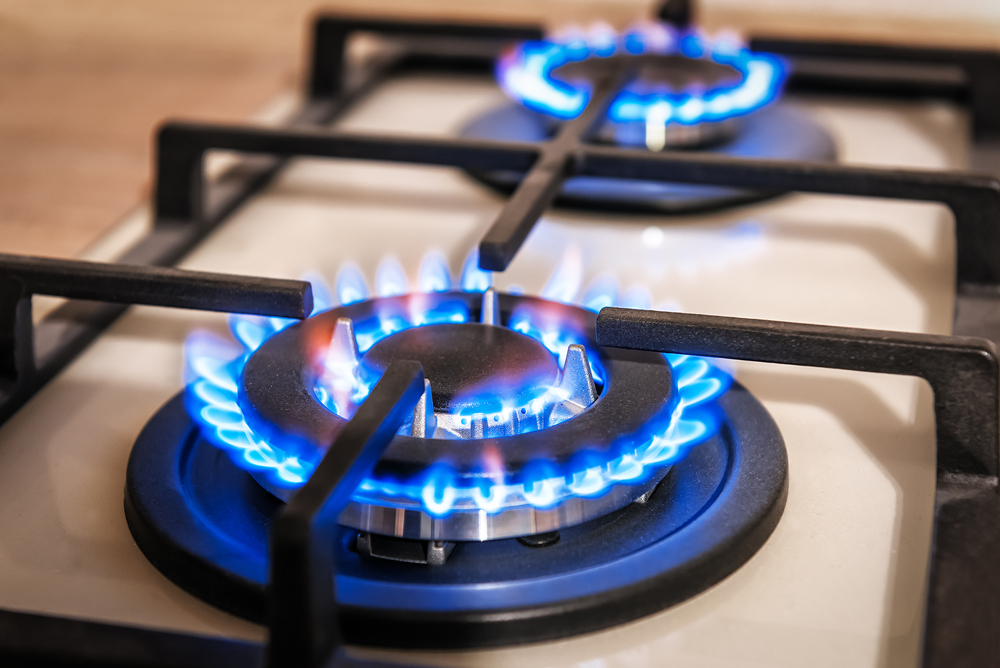Cost of living crisis: 10 financial support schemes to help tenants pay their energy bills
While the energy crisis is ongoing and a further increase in the energy price cap, your agency's tenants may be searching for ways to help pay their power bills. Here are seven sources of financial support available to help them pay their bills in your landlord's property.
The Goodlord team
Sep 29, 2021
As the cost of living continues to rise - with the energy crisis pushing up bills - the government has announced new measures to support households across England, Scotland, and Wales. These measures will sit alongside those already in place for low income and vulnerable households to help those that struggle with bill payments, especially over the winter months. Here's an overview of the support your tenants may be able to access.
Energy Bills Support Scheme
The Chancellor of the Exchequer previously announced a £200 rebate on energy bills in England, Scotland, and Wales, starting from October 2022, which would then need to be paid back over five years.
This has now doubled to £400, and households will no longer need to pay it back - helping an estimated 28 million households pay their bills.
The discount will be paid to consumers over a six-month period, starting from October 2022, by their energy suppliers. The payments will be automatically deducted from their bills, for anyone paying via credit, payment card, or direct debit.
Anyone with a prepayment meter will receive "Energy Bill discount vouchers" in the first week of each month, via SMS text, email or post, which can be used at their usual top up points.
The government emphasises that no one will be asked for their bank details at any point.
New payments for low-income households
Low income households most affected by the rising cost of living, including those on Universal Credit, Tax Credits, Pension Credit and legacy benefits, will also get a new payment of £650.
The payment will be made in two lump sums - the first from July 2022 and the second in the autumn. It will also be tax free, and won't count towards the benefit cap.
A second payment of up to £900 will be made in the 2023-2024 financial year.
Pensioner Cost of Living Payments
Pensioner households - that already receive the Winter Fuel Payment - will also get an additional payment of £300, paid by direct debit for most.
An additional £300 Cost of Living Payment will be made to pensioners in 2023-24.
All pensioner households will get the Pensioner Cost of Living Payments as a top-up to their annual Winter Fuel Payment in November/December.
Disability Cost of Living Payments
Those on disability benefits will also get paid directly a payment of £150, to help support the additional costs they face, such as "specialist equipment, specialist food, and increased transport costs".
Those on eligible "extra costs" disability benefits will receive an additional £150 Disability Cost of Living Payment in 2023-24.
Claimants must be already receive or have started an "eventually successful claim" for benefits as of 25 May 2022 to be eligible.
Council tax rebate
Chancellor Rishi Sunak revealed that around 80% of households in England - those in council tax bands A-D - will get £150 back on their council bills.
This rebate will not need to be repaid. Local authorities will use the bank account details they hold for people paying council tax by debit card to credit eligible accounts with a one-off payment of £150 from April 2022.
If your tenants in these bands don't pay via direct debit, their council will be able to process their claims in April.
Warm Home Discount Scheme
Eligible tenants may be eligible to get up to £150 off their electricity bill during the 2022-2023 winter season under the new Warm Home Discount Scheme. This would not be a direct payment to your tenants, but rather a one-off discount on their bill between October and March.
For your tenants to be eligible, they will need to qualify in one of two ways. The first way is with the "Guarantee Credit element of Pension Credit". Eligible tenants should receive a letter explaining how to get the discount.
If your tenants are on a low income, they'll need to meet their energy supplier's criteria instead. Even tenants with a pre-pay or pay-as-you-go meter for their supply could benefit, they would simply receive a voucher if they were eligible. Each tenant should check if their energy supplier is part of the scheme and then check how to apply directly with their supplier.
Cold Weather Payment
Your tenants could benefit from a Cold Weather Payment of £25 per day over a 7 day period, if the average temperature where they live is recorded as zero degrees celsius or below over those days, between 1 November and 31 March.
Your tenants may be eligible for these payments if they receive:
- Pension Credit
- Income Support
- Income-based Jobseeker’s Allowance
- Income-related Employment and Support Allowance
- Universal Credit
- Support for Mortgage Interest
Eligible tenants won't need to apply, but will automatically receive these payments.
Winter Fuel Payment
For any of your elderly tenants born on or before 26 September 1955, they could receive a of £100 to £300 by 14 January 2022 to help pay their heating bills with a tax-free Winter Fuel Payment. If they fit this age bracket, and also get the State Pension or another social security benefit that isn't Housing Benefit, Council Tax Reduction, Child Benefit or Universal Credit, this payment will be made automatically.
If they don't get either of those benefits but still meet the age criteria, they will need to make a claim by 31 March 2022 for winter 2021-2022. Once they've received their first payment, they will not need to reapply the following year, unless they defer their pension or move to Switzerland or an EEA country.
Grants from energy trusts
If your tenants find themselves in debt for their energy bills, they may also be able to find financial support from charitable trusts, to help them pay it off. While your tenants should check if there's a relevant trust through their current supplier, British Gas Energy Trust offers grants even to those who aren't British Gas customers.
Most trusts would need your tenants to share detailed information about their financial situation, and demonstrate that they have received debt advice before they apply.
Household Support Fund
The government has also funnelled £1.5 billion into its Household Support Fund since October 2021, to help vulnerable households across the UK with essential costs.
The funds will be shared with local councils, which can use it to share "small grants to meet daily needs such as food, clothing, and utilities" and will be available until March 2023.
As Chancellor of the Exchequer, Rishi Sunak said: "Everyone should be able to afford the essentials, and we are committed to ensuring that is the case."
The grants will be available over the winter and anyone wishing to claim the support should contact their local council to understand how they can access it.
This article is intended as a guide only. It is not exhaustive and does not constitute legal advice. For more information, please refer to gov.uk.






.jpg)